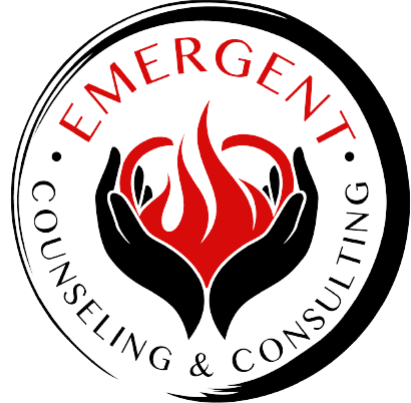Ever feel like you’re running on fumes, but your brain is still stuck in overdrive? You crash on the couch at the end of the day, exhausted but unable to relax. Sleep doesn’t refresh you, coffee barely makes a dent, and your body feels like it’s holding onto tension you can’t shake. If this sounds familiar, you might be dealing with chronic stress and nervous system dysregulation.
In today’s hustle culture, we normalize exhaustion. We wear stress like a badge of honor—until our bodies force us to stop. But chronic stress isn’t just “being busy” or “having a lot on your plate.” It rewires your nervous system, disrupts your hormones, and can lead to serious health issues if left unchecked.
The Link Between Chronic Stress, Burnout, and Illness
Your body isn’t designed to be in survival mode 24/7. Stress triggers the fight, flight, or freeze response, flooding your system with adrenaline and cortisol. In short bursts, this is helpful—it keeps you sharp in emergencies. But when stress is unrelenting, your nervous system stays stuck in high alert, and things start to break down:
- Your immune system weakens, making you more vulnerable to infections.
- Your digestion slows down, leading to bloating, IBS, or stomach issues.
- Your sleep gets disrupted, leaving you tired even after 8 hours.
- Inflammation skyrockets, increasing the risk of chronic conditions like heart disease, diabetes, and autoimmune disorders.
This is why people experiencing prolonged stress often say, “I just don’t feel like myself anymore.” Their body is working overtime to keep up, but eventually, it can’t. This is when stress shifts from being a mental strain to a full-blown physical crisis.
Signs Your Nervous System Is Dysregulated
Chronic stress doesn’t always show up as “feeling stressed.” Sometimes, it disguises itself in symptoms that seem unrelated. Here are some common red flags:
You’re Always Exhausted, But Rest Doesn’t Help
If you wake up feeling just as tired as when you went to bed, your body might be stuck in chronic stress mode. This can disrupt sleep quality, even if you’re getting enough hours.
You Have Random Aches, Pains, or Gut Issues
Unexplained body aches, tension headaches, and digestive problems are often signs that your nervous system is struggling. When stress hormones stay elevated, they wreak havoc on your muscles, joints, and gut.
You Feel Anxious, Irritable, or Emotionally Numb
Your nervous system controls more than just your body—it also affects your emotions. When it’s dysregulated, you might feel constantly on edge or, on the flip side, completely checked out and emotionally detached.
You Get Sick More Often
If every little cold seems to hit you like a truck, chronic stress may be suppressing your immune system. Your body is prioritizing survival over fighting off germs.
You Struggle to “Turn Off” or Relax
If you can’t sit still without feeling restless, constantly check your phone, or always need background noise, your nervous system might be stuck in high alert. This is a classic sign of sympathetic dominance, where your body thinks it always needs to be “on.”
How Body-Based Healing Restores Energy & Balance
The good news? You don’t have to live in survival mode forever. Your nervous system is adaptable—with the right tools, you can train it to shift from stress to safety. Healing isn’t just about “thinking positive” or “reducing stress”—it’s about physically releasing the tension trapped in your body. Here’s how:
- Activate Your Parasympathetic Nervous System
This is the “rest and digest” state, where true healing happens. To shift into this mode:
- Practice deep belly breathing (inhale for 4 seconds, exhale for 6).
- Try humming, singing, or chanting—these activate the vagus nerve, which calms the body.
- Use cold exposure (splash cold water on your face or take a short cold shower).
- Move Your Body, But Gently
Intense workouts can actually add to stress if your nervous system is already fried. Instead, opt for somatic movement, which helps release stored tension:
- Yoga and stretching to soften tight muscles.
- Walking in nature to reset your mind.
- Shaking or bouncing (yes, literally shaking your body) to release nervous energy.
- Address Stored Trauma
Unprocessed emotions don’t just “go away”—they get stored in your body. Therapies like somatic experiencing, EMDR, and breathwork can help your nervous system process old stress and find balance.
- Prioritize Real Rest (Not Just Sleep)
Rest isn’t just about sleeping more—it’s about nervous system recovery. This means:
- Taking tech-free breaks (yes, even from doomscrolling).
- Engaging in play, laughter, or creative hobbies to bring joy back into your system.
- Allowing yourself moments of stillness without guilt.
- Nourish Your Body
Chronic stress depletes key nutrients, so support your nervous system by:
- Eating whole foods rich in magnesium, B vitamins, and omega-3s.
- Drinking enough water (dehydration adds to fatigue).
- Reducing caffeine (sorry, but the jittery cycle isn’t helping).
Final Thoughts: Your Body Is Asking for Safety, Not More Hustle
If you’ve been stuck in a cycle of exhaustion, anxiety, or burnout, your body isn’t failing you—it’s protecting you. Chronic stress makes your nervous system feel like it’s constantly under attack. The key to healing isn’t just “pushing through”—it’s learning how to send signals of safety back to your body.
Start small. Try one or two body-based techniques today. The more you show your nervous system that it’s safe, the more energy and balance you’ll regain. Because you deserve more than just surviving—you deserve to feel alive.

